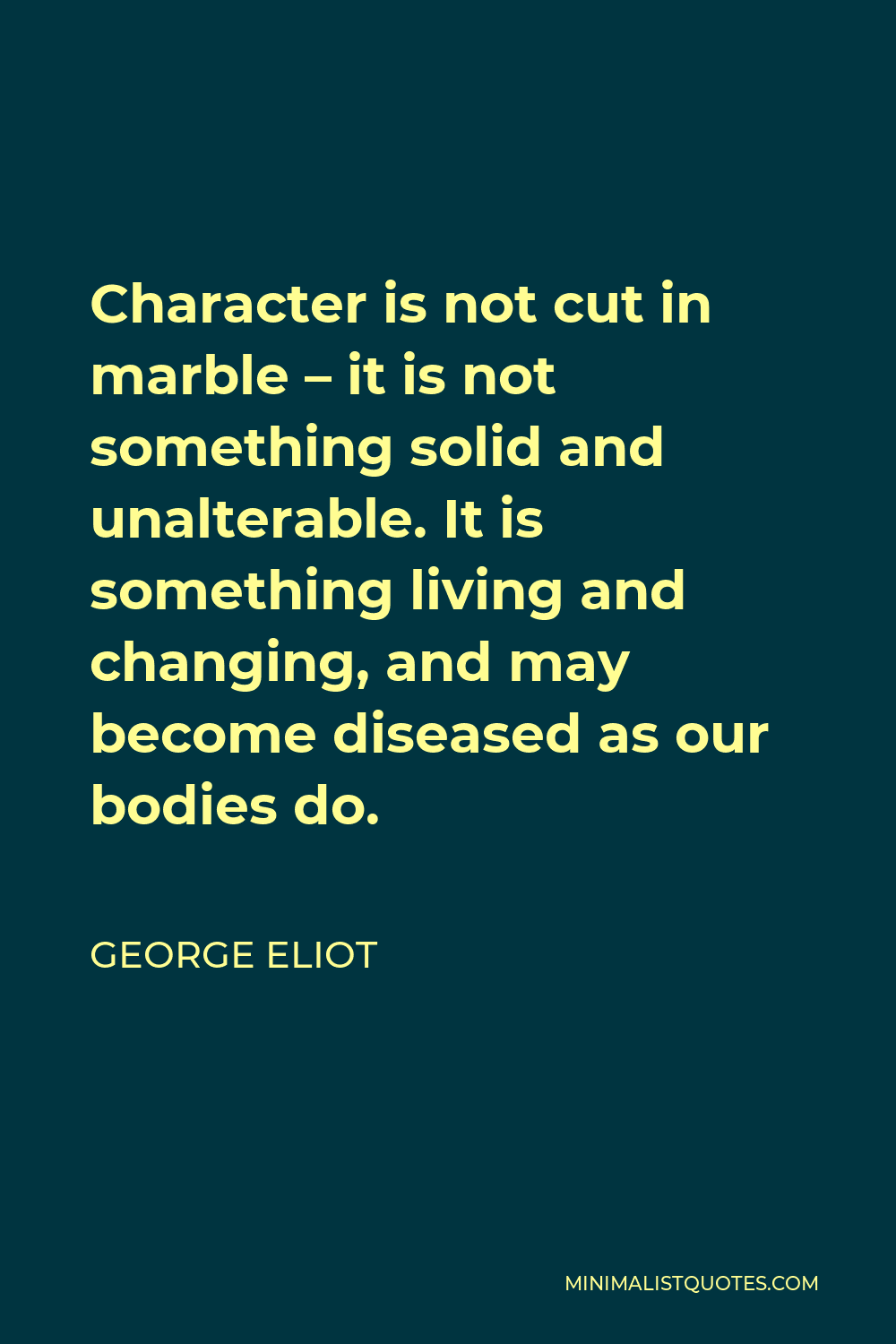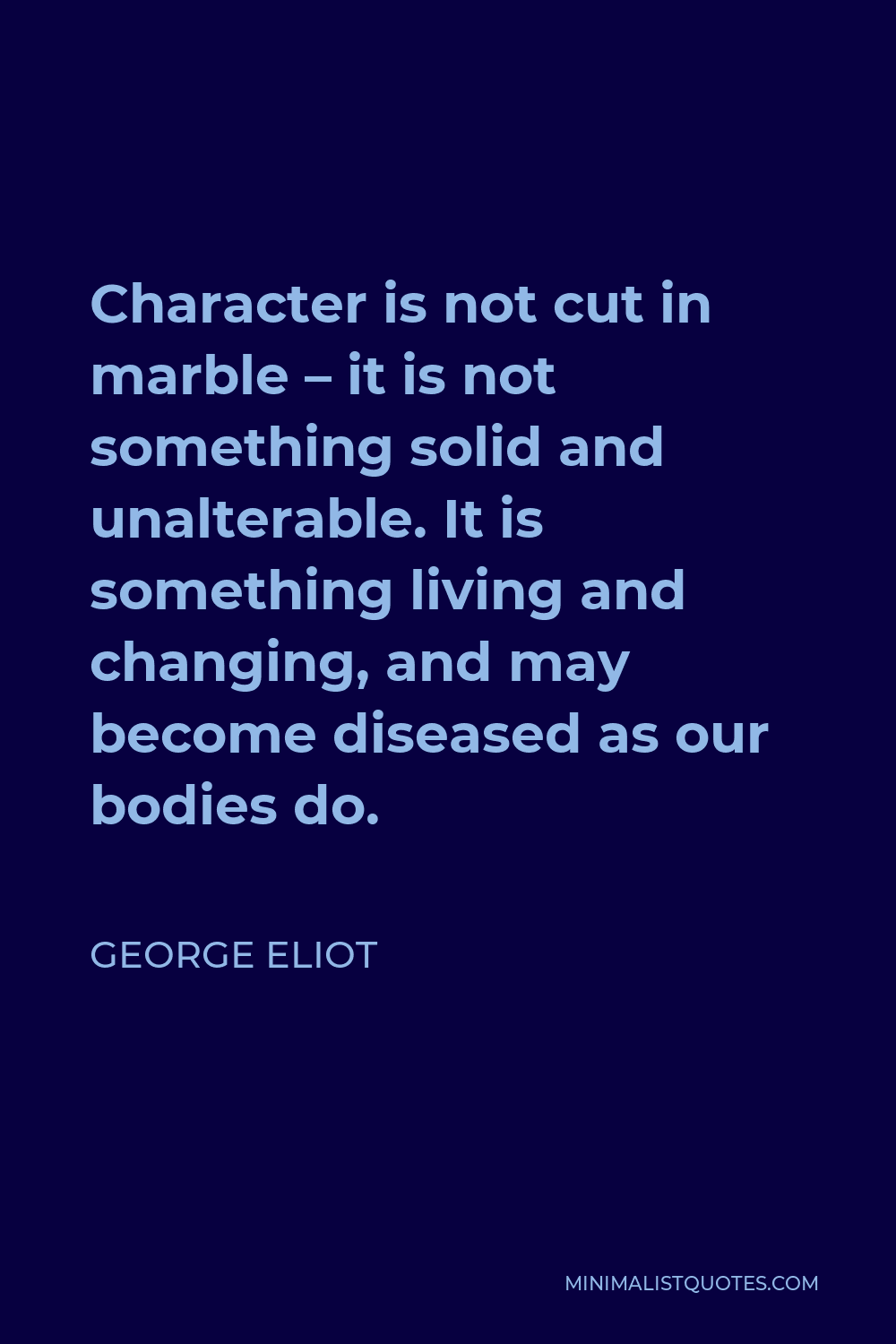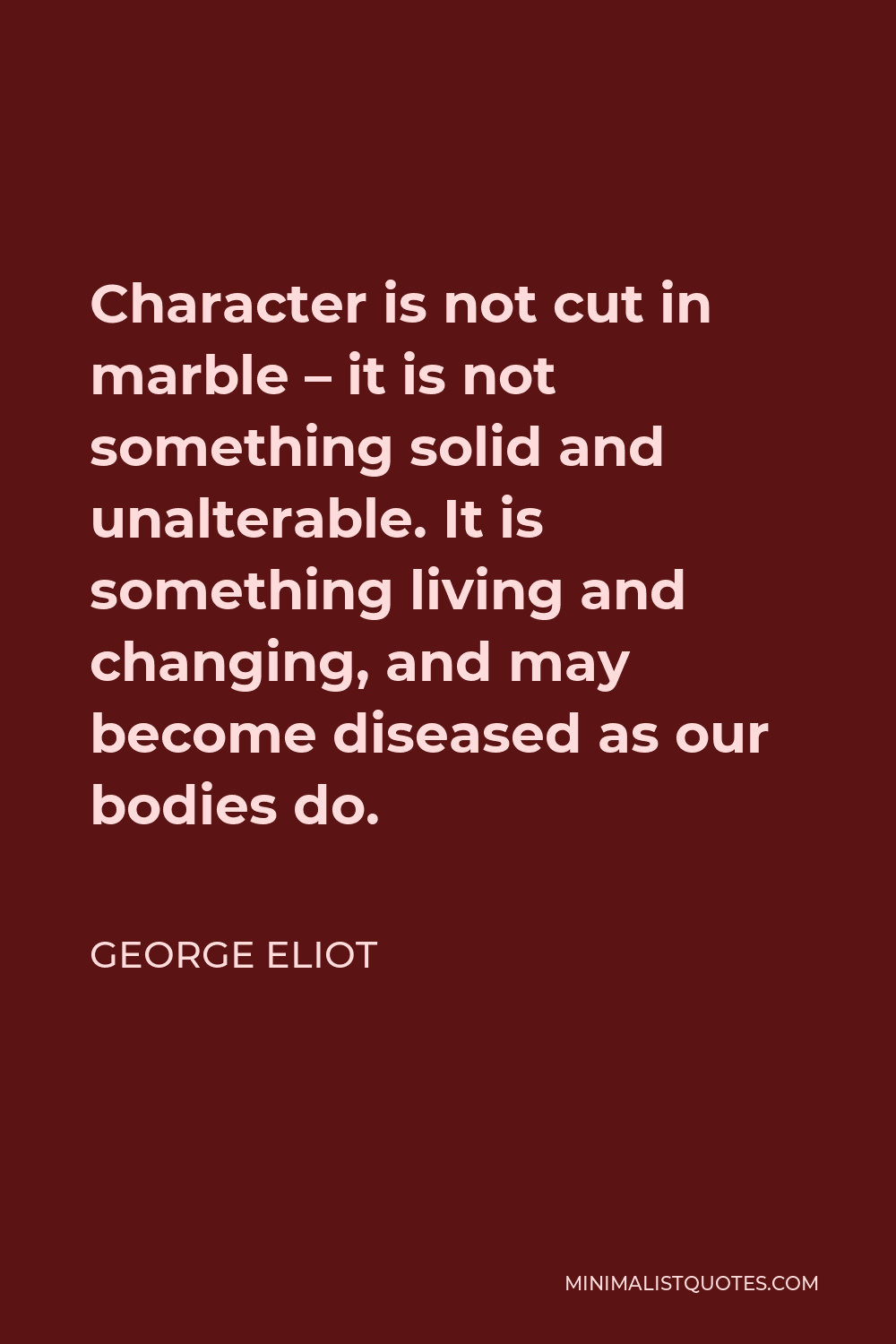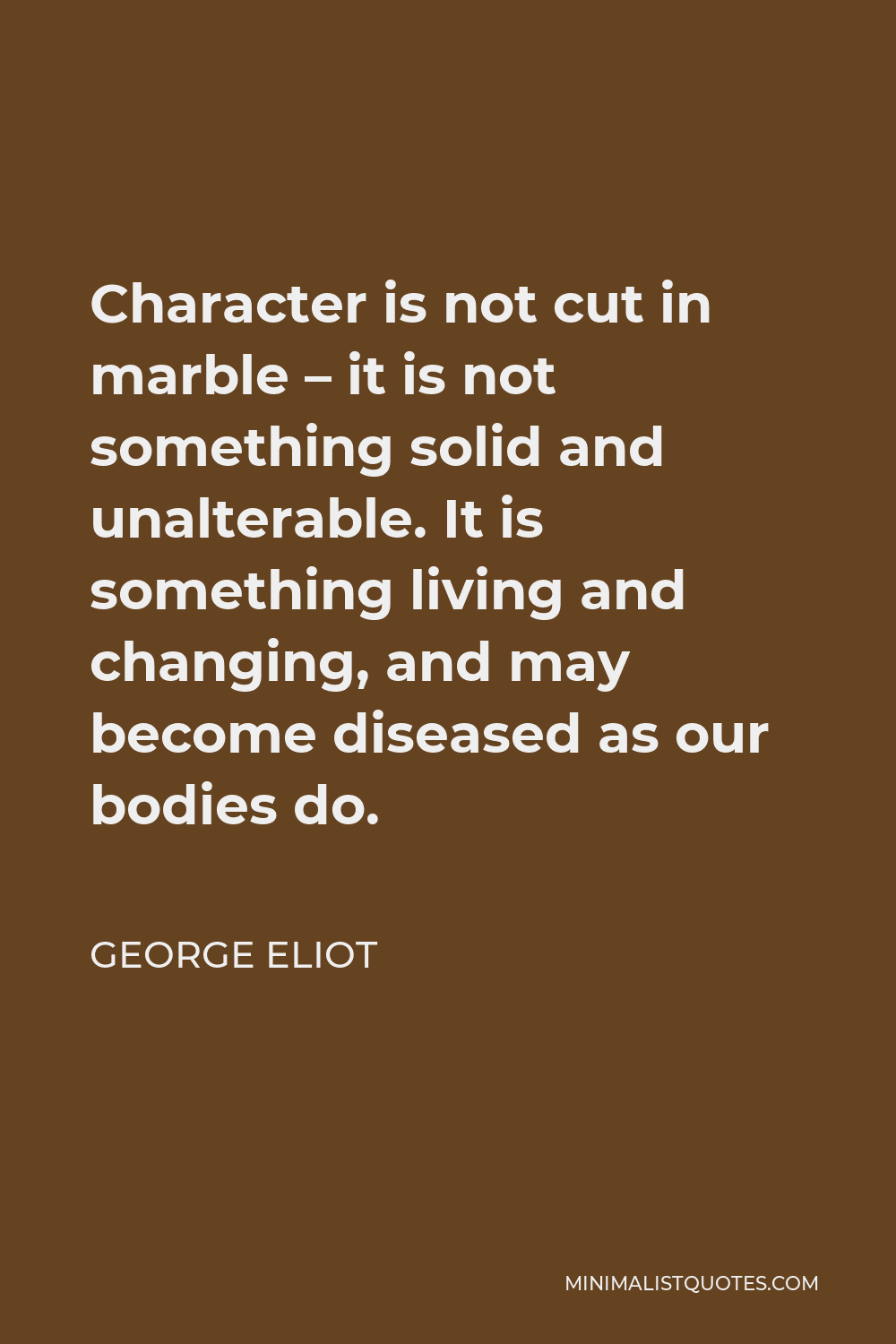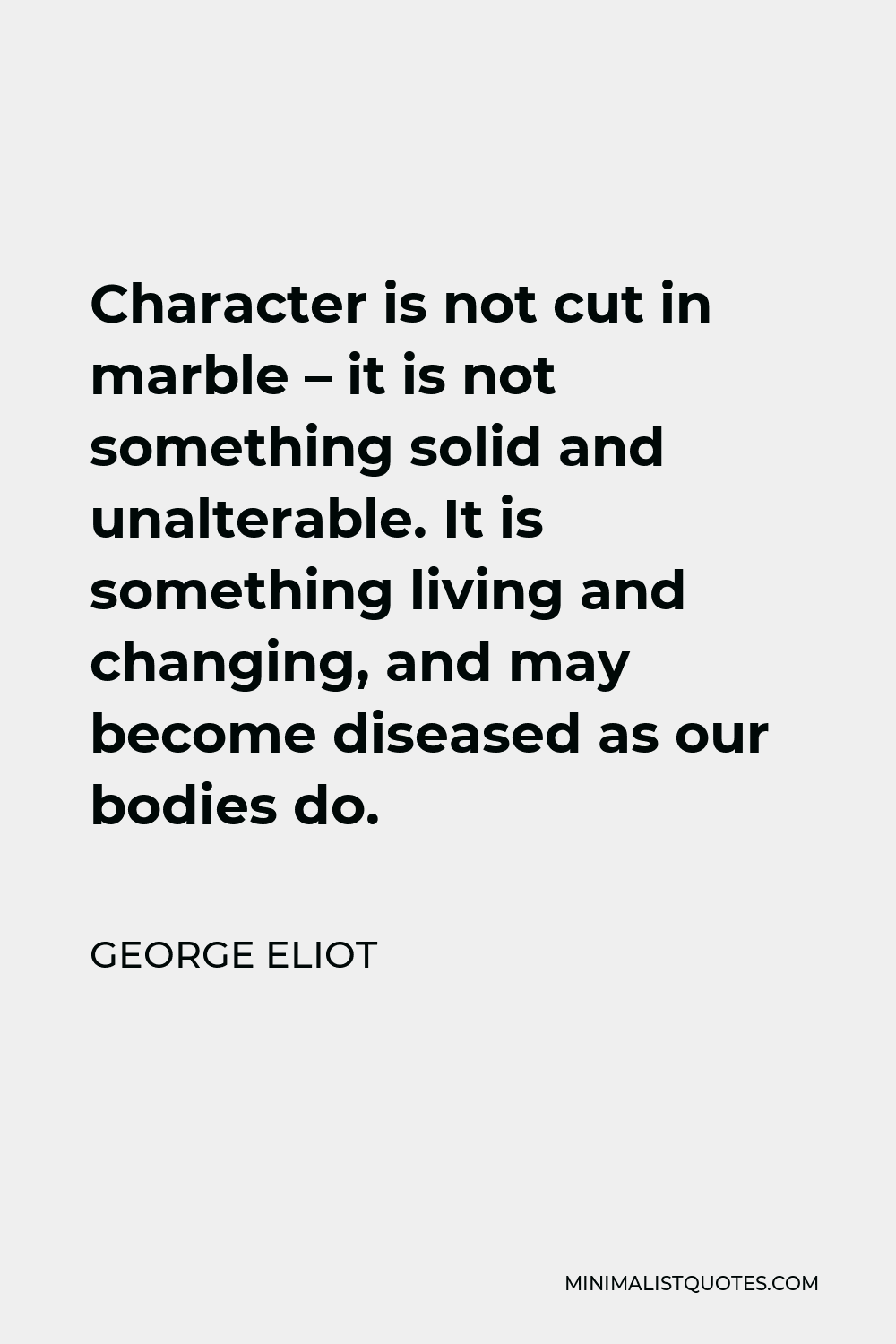Religious ideas have the fate of melodies, which, once set afloat in the world, are taken up by all sorts of instruments, some of them woefully coarse, feeble, or out of tune, until people are in danger of crying out that the melody itself is detestable.
GEORGE ELIOTCharacter is not cut in marble – it is not something solid and unalterable. It is something living and changing, and may become diseased as our bodies do.
More George Eliot Quotes
-







-







Marriage must be a relation either of sympathy or of conquest.
GEORGE ELIOT -






Adventure is not outside man; it is within.
GEORGE ELIOT -






Your trouble’s easy borne when everybody gives it a lift for you.
GEORGE ELIOT -







What sunshine is to flowers, smiles are to humanity.
GEORGE ELIOT -







Love has a way of cheating itself consciously, like a child who plays at solitary hide-and-seek; it is pleased with assurances that it all the while disbelieves.
GEORGE ELIOT -





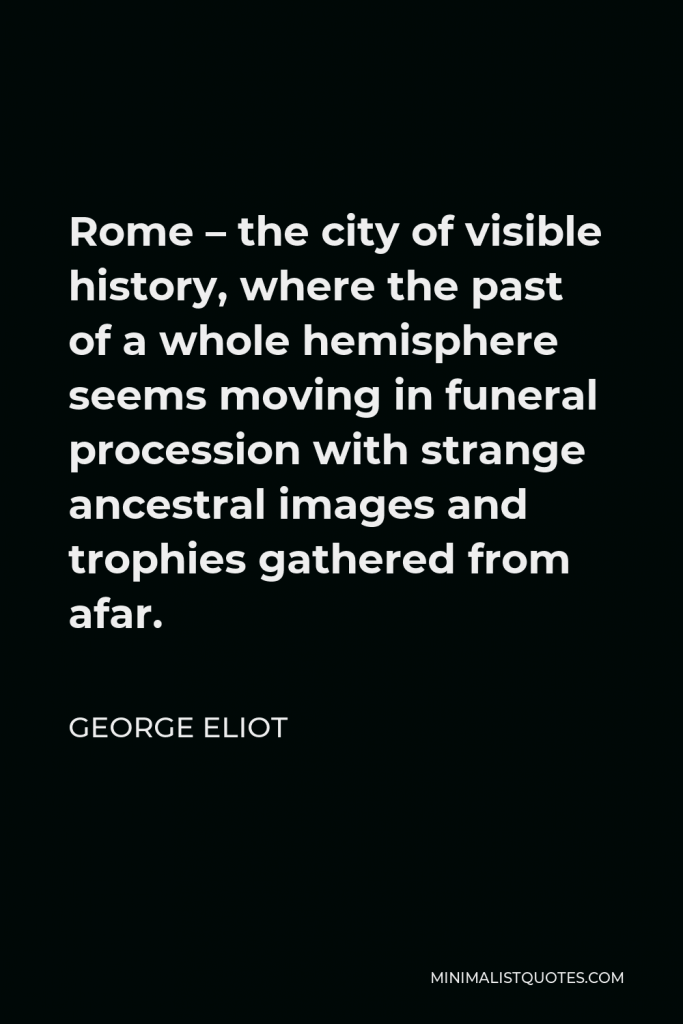

Rome – the city of visible history, where the past of a whole hemisphere seems moving in funeral procession with strange ancestral images and trophies gathered from afar.
GEORGE ELIOT -





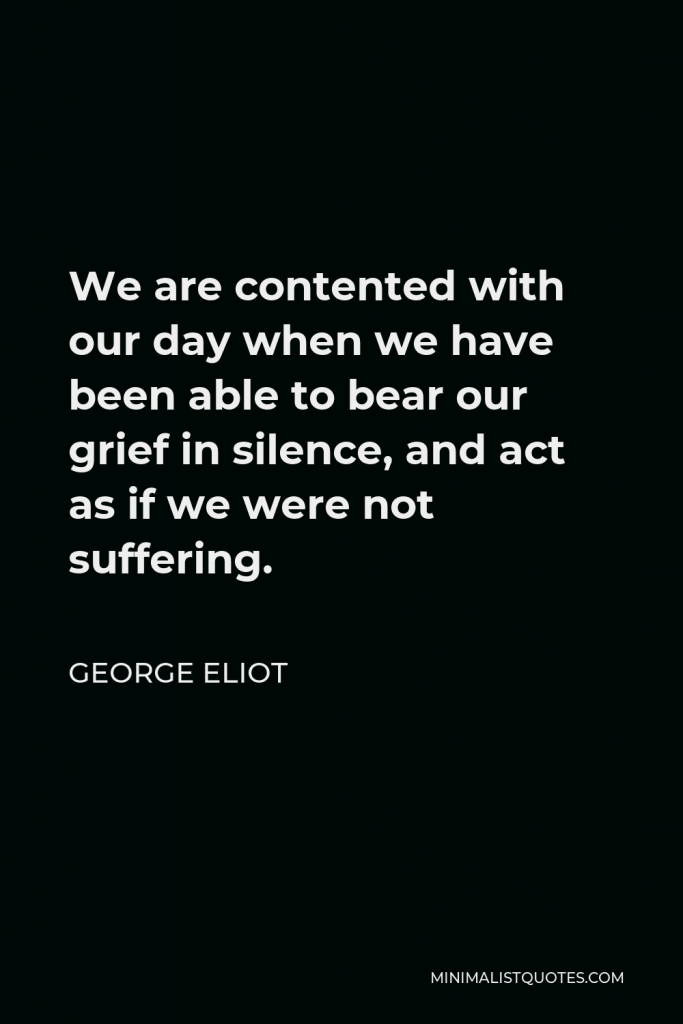

We are contented with our day when we have been able to bear our grief in silence, and act as if we were not suffering.
GEORGE ELIOT -







The right to rebellion is the right to seek a higher rule, and not to wander in mere lawlessness.
GEORGE ELIOT -





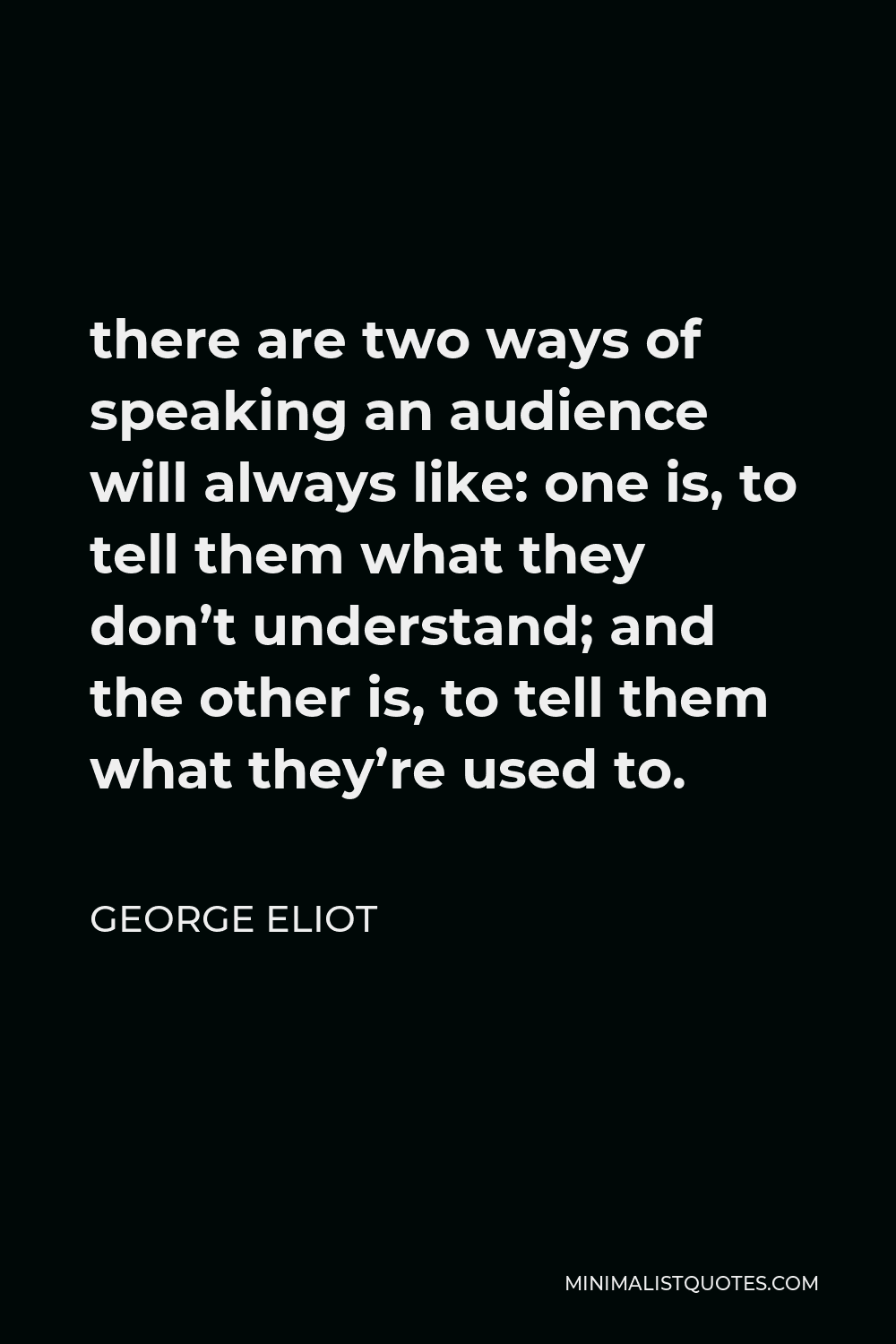
there are two ways of speaking an audience will always like: one is, to tell them what they don’t understand; and the other is, to tell them what they’re used to.
GEORGE ELIOT -







A good horse makes short miles.
GEORGE ELIOT -





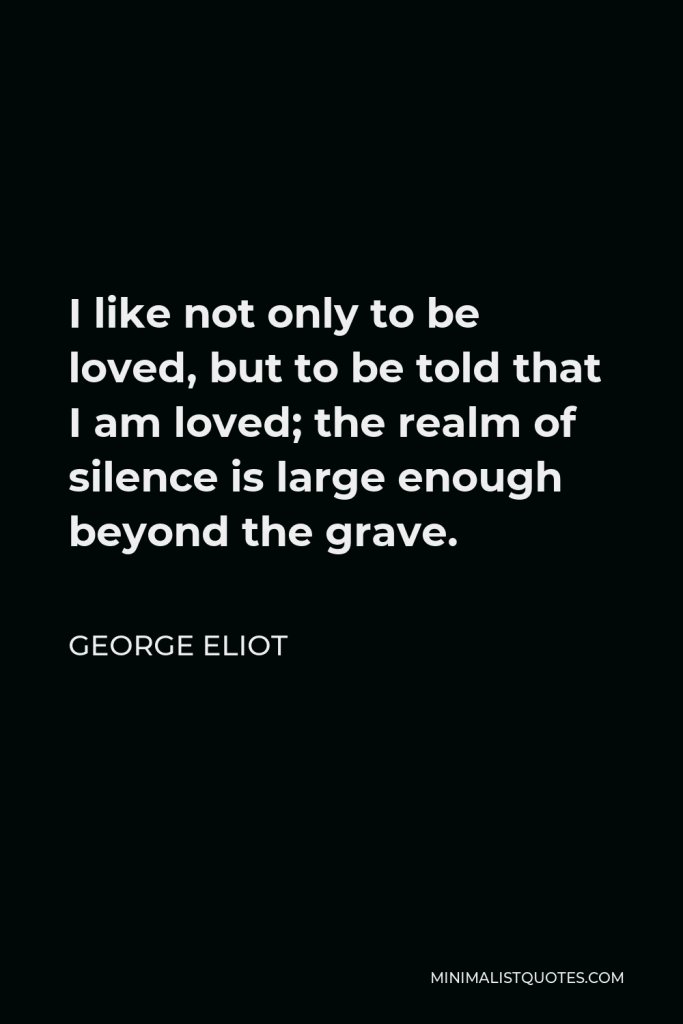

I like not only to be loved, but to be told that I am loved; the realm of silence is large enough beyond the grave.
GEORGE ELIOT -





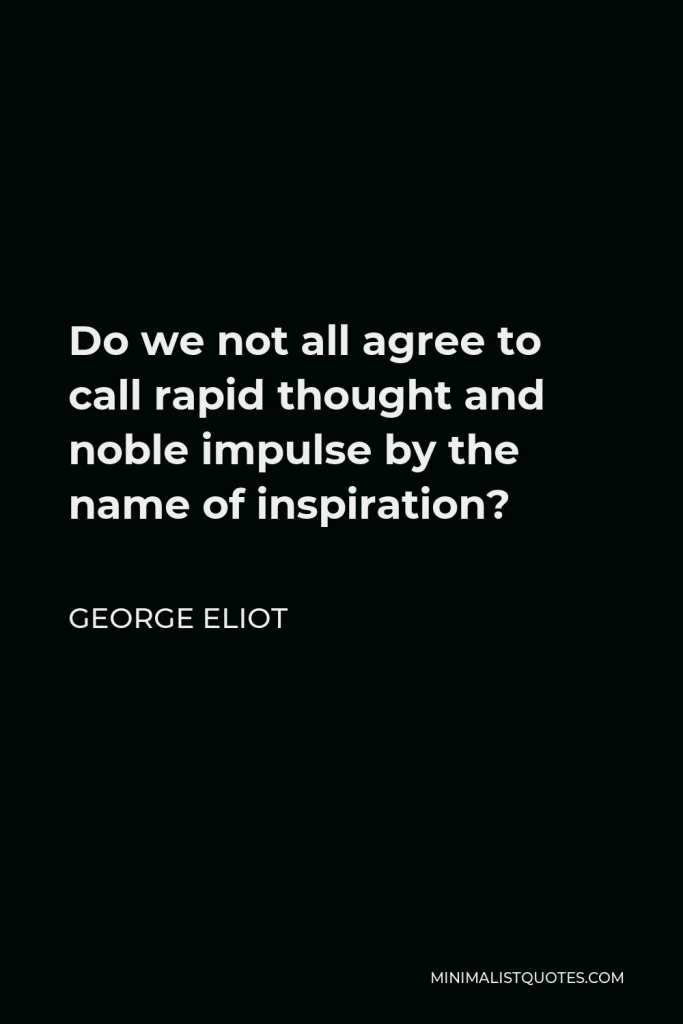

Do we not all agree to call rapid thought and noble impulse by the name of inspiration?
GEORGE ELIOT -







“Abroad,” that large home of ruined reputations.
GEORGE ELIOT -





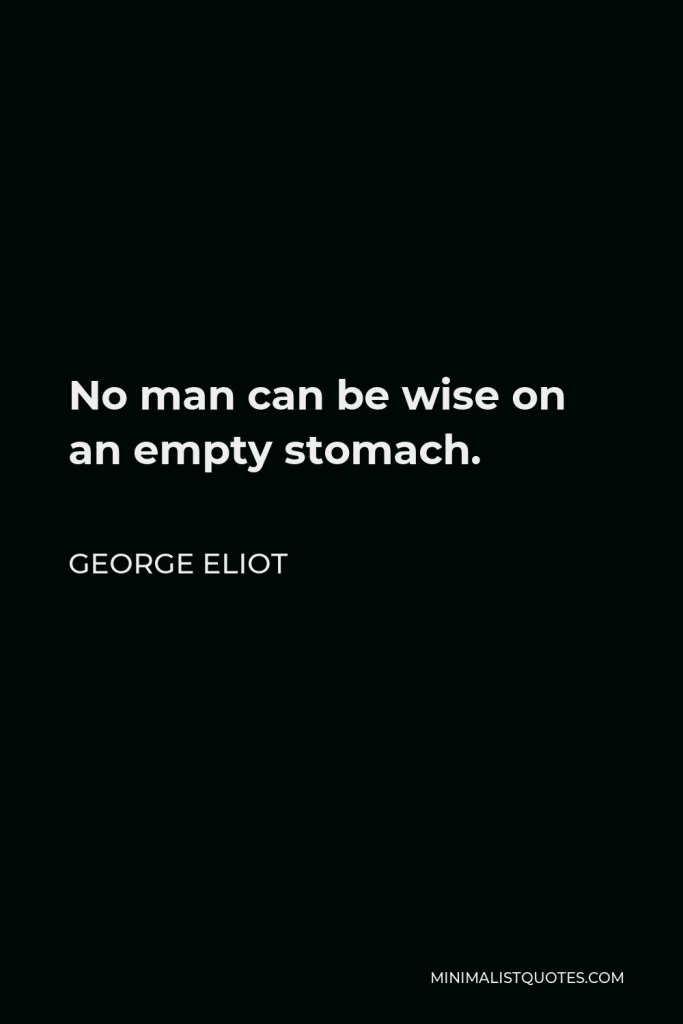

No man can be wise on an empty stomach.
GEORGE ELIOT -





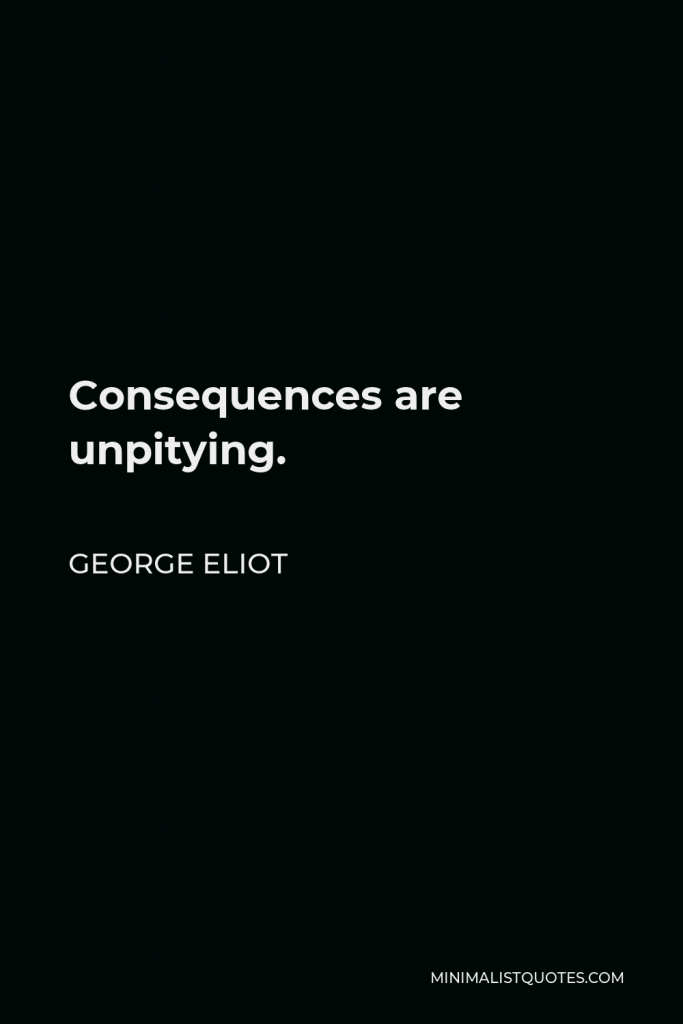

Consequences are unpitying.
GEORGE ELIOT

